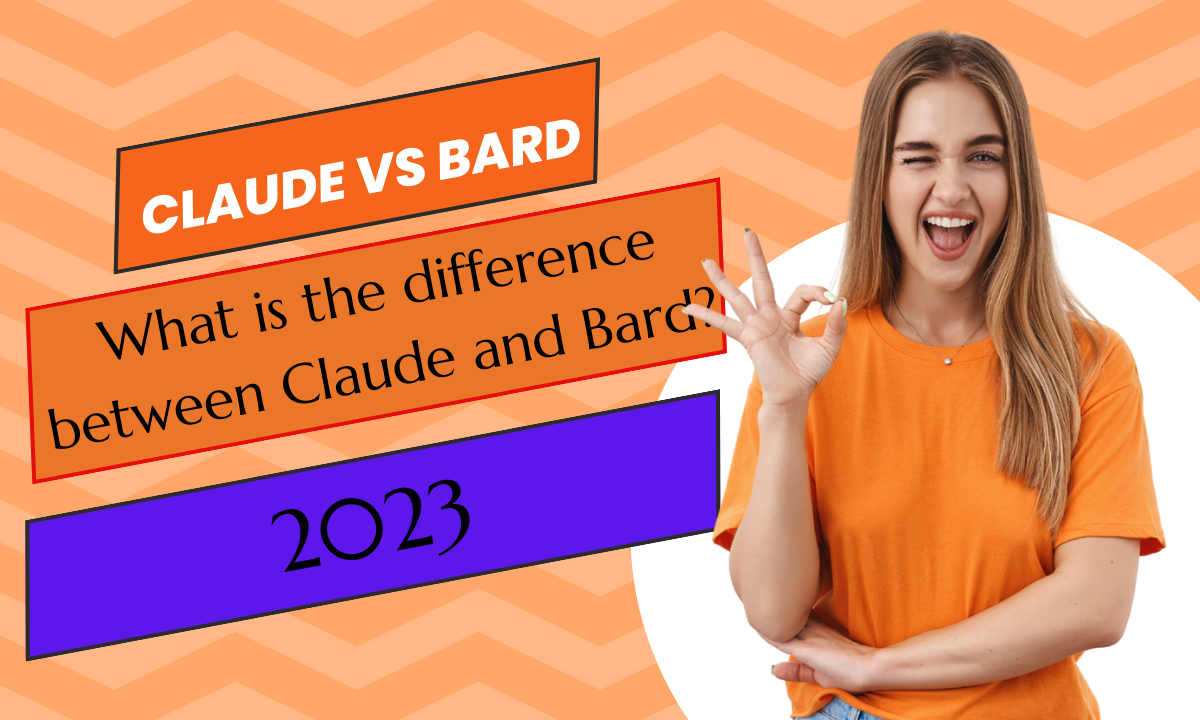Two of the most advanced conversational AI systems making waves today are Claude from Anthropic and Bard from Google. These powerful chatbots have quickly become leaders in the red-hot AI space.
But what exactly sets Claude and Bard apart? As both aim to deliver human-like conversational experiences, where do their capabilities differ?
This overview covers the core distinctions between Claude AI and Bard AI as they emerge as top next-gen chatbot technologies in 2023.
Conversational Style between Claude vs Bard
The most noticeable difference between Claude and Bard is their conversational style and strengths.
Claude focuses heavily on natural back-and-forth conversation flows. It is designed to contextually discuss a wide range of real-world topics through an extended exchange like humans.
Bard prioritizes providing concise, useful information in response to queries. While it can answer follow-up questions, its conversations are more limited than Claude’s fluid discourses.
For depth of knowledge and reasoning, Claude leads. But Bard edges out for quick informative responses.
Accuracy and Responsibility
Another major area where Claude stands apart is its rigorous guidelines on being helpful, harmless, and honest. Claude will admit knowledge gaps or mistakes instead of guessing.
Bard sometimes tries to speculate or generate responses despite uncertainty, leading to factual errors or hallucinations. Its accuracy and responsibility norms are less defined.
Claude’s clear principles of transparency on limitations reflect Anthropic’s research priorities of trustworthiness.
Development History
Claude was built from the ground up by Anthropic with conversational abilities in mind. It continues intensive ongoing training.
Bard leverages Google’s existing LaMDA model used for applications like Google Assistant. Its architecture wasn’t originally optimized for free-form conversation.
This difference in developmental history impacts capabilities. Claude was designed from day one for advanced interfacing.
Launch Status
While both chatbots are relatively newly launched, their current access differs.
Claude remains in invite-only beta testing with no public rollout yet. Bard launched a public preview in February 2023, though with limited availability.
This gives Bard an edge currently in reach and testing for the general public. But as both expand access, this gap may narrow.
Integrations
Given its launch status, Bard already enjoys tight integration with Google search to enhance results with AI summaries.
Claude does not yet have any major integrations, though it offers API access for developers.
Over time, Claude will likely expand into more platforms. But Bard has the head start on leveraging AI to upgrade existing products.

Ethics and Oversight
Responsible AI development is critical with powerful chatbots like Claude and Bard. Here their approaches diverge.
Claude implements clear ethical principles and external oversight from the start. Bard’s processes remain less transparent.
This difference in priorities for human values impacts public trust. Claude’s guidelines help ensure safety.
Conclusion
Claude AI and Bard AI both represent major advances in conversational AI, they have distinct strengths and development focuses that set them apart in 2023:
- Claude specializes in natural, free-flowing conversations while Bard prioritizes succinct informative responses.
- Claude has more rigorous principles around transparency and honesty, while Bard sometimes makes errors.
- Claude was built specifically for advanced dialog skills, whereas Bard leverages existing Google technology.
- Bard is already integrated into Google search, while Claude currently has limited integrations.
- Claude remains in private beta testing, while Bard has launched a public preview.
- Claude emphasizes clear ethical guidelines and oversight from the start.
These differences highlight how the unique approaches of Claude and Bard can push conversational AI forward in complementary ways. As they continue rapid development, Claude’s conversation abilities and Bard’s knowledge integration offer different glimpses into the future of advanced chatbot technology.
FAQs
Q: Which chatbot has more human-like conversation abilities?
A: Claude AI is more skilled at natural back-and-forth conversational flows on a wide range of topics.
Q: Which AI sometimes makes incorrect or invented statements?
A: Bard AI is more prone to factual errors or hallucinations while Claude emphasizes being honest about limitations.
Q: Which chatbot launched more recently?
A: Bard launched in a public preview in February 2023 while Claude remains in private beta testing.
Q: Which AI is integrated into a search engine?
A: Bard augments Google search results while Claude currently has limited integrations.
Q: Which chatbot was built specifically for conversation?
A: Claude was engineered from the ground up by Anthropic to excel at human conversations.
Q: Which AI has clearer ethical guidelines?
A: Claude implements defined principles and oversight to ensure responsible development.
Q: Which chatbot typically responds faster?
A: Claude is optimized for rapid-fire chat speed and latency. Bard has slightly longer response times.
Q: Which AI has tighter usage limits right now?
A: Claude remains capped at a small number of testers. Bard invites are more widely available.
Q: Which chatbot is still in active training?
A: Both Claude and Bard continue advanced model development, with Claude starting from a lower baseline.
Q: Which AI would be better for casual conversation?
A: Claude’s strengths at contextual chat make it preferable for flowing casual dialog compared to informational Bard.
In summary, while these cutting-edge AIs take different approaches, both Claude and Bard represent major leaps forward in conversational AI that will push the entire field ahead. Their unique strengths and specializations will likely lead to integration and synergy rather than competition. Together, they usher in a new generation of intelligent chatbot technologies.

